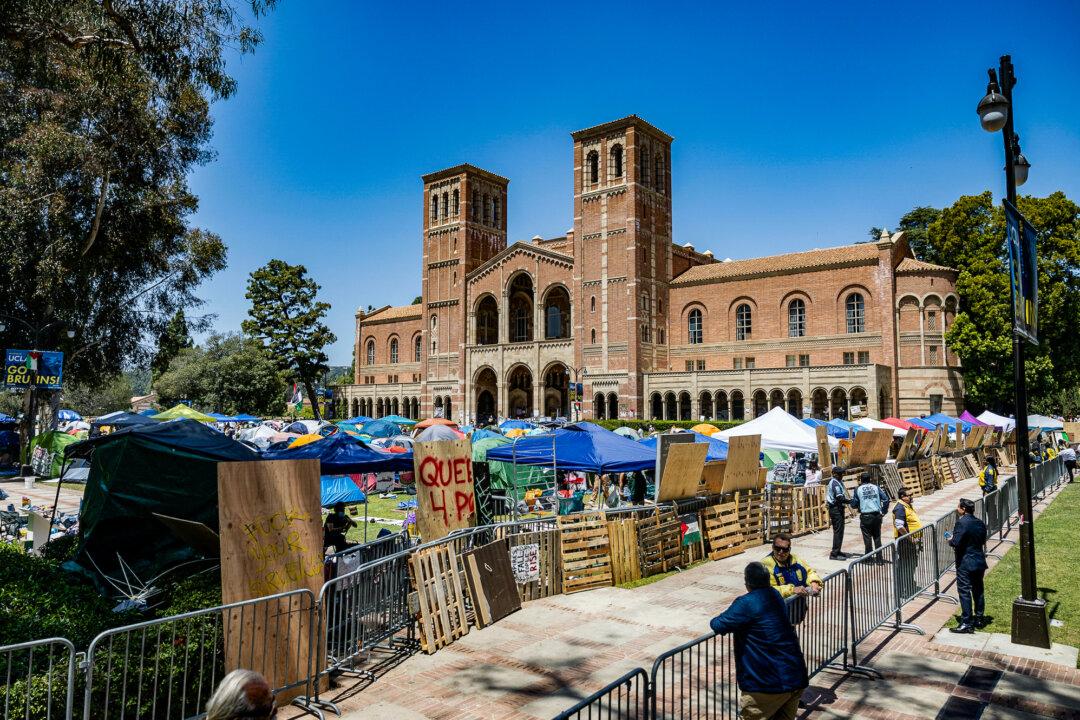Police at UCLA issued an unlawful assembly order over loudspeakers on Wednesday evening, ordering people to clear out of a pro-Palestinian encampment following a night of violence.
The order to disperse was broadcast around 6 p.m., urging demonstrators to vacate the area. There is a large law enforcement presence standing by at the campus “to help promote safety,” the university announced on Wednesday evening.





